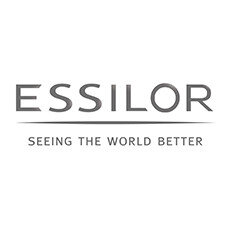Essilor
Essilor
Expanding access to vision care in developing countries.
BCTA MEMBERSHIP STATUS
Active
SECTOR
Health
HEADQUARTERS
France
REGION OF INITIATIVE
Africa, Asia & Pacific, Latin America & Caribbean
SDG CONTRIBUTION
RELATED NEWS
Essilor International, the world's leading ophthalmic optics company with a mission to improve lives by improving sight, has joined the Business Call to Action (BCtA) with a pledge to create 40,000 primary eye care workers in underserved regions by 2020. The company expects its broadening inclusive business models to improve health outcomes, productivity and wellbeing for more than 50 million low-income people in the next four years.
Poor vision is the world's most prevalent disability: while an estimated 4.5 billion people need some form of visual correction, only 1.9 billion people have received corrective care. This leaves 2.5 billion people with uncorrected poor vision, 95 percent of them in developing countries. Poor vision affects academic and job performance, jeopardizes road safety and increases the risk of injuries, in particular among elderly people.
A recent study published in the Journal of Ophthalmology revealed that by 2050, half the world's population or nearly 5 billion people may be short-sighted (myopic), with one fifth of them (1 billion) at significant risk of blindness. Another study by the World Health Organization estimated that lost economic productivity associated with uncorrected vision problems amounts to I$272 billion.
Essilor's inclusive business models are based on its strategy of continuous innovation and the belief that good vision is a basic right for everyone. In 2013 the 165-year-old company launched its 2.5 New Vision Generation (2.5 NVG) division to provide affordable vision care to low-income populations that do not have access to conventional eye care and who often lack awareness both of their vision problems and of the importance of healthy vision.
2.5 NVG goes hand in hand with the company's expansion into developing markets in Africa, Asia and Latin America, helping to create the next generation of Essilor customers with vision care that is both affordable and accessible. Among its innovations are several new business models that train local individuals to become vision entrepreneurs, and a range of attractive 'ready-to-clip' eyeglasses, which allow customers to be equipped on the spot as opposed to waiting several days for their eyeglasses.
In India, the company has ramped up its Eye Mitra Optician program to address the drastic shortage of eye care professionals in rural areas (in India there is roughly 1 qualified optometrist for 25,000 people compared to 1 for every 3,000 in France). At the same time, the program is addressing India's critical need for jobs: Essilor trains local people in vision screening and dispensing prescription eyeglasses, then empowers them to start their own small optical shops.
An independent study of Eye Mitra Opticians impact revealed that new eyeglass wearers created through this program saved an average of 1.5 hours a day on daily tasks such as farming and domestic chores, and lived more independent lives. The study quantified this impact including wearers increased productivity and revenues for rural suppliers as well as Essilor's earnings at US$4.4 million per year in six districts alone. If the Eye Mitra initiative was scaled up to all districts in India, this impact would total US$487 million per year.
In addition, the company has successfully launched and developed the Vision Ambassador initiative in underserved areas across India, Brazil and China. Vision Ambassadors receive training in basic vision screening and sell glasses to supplement their incomes. The initiative is being scaled up to include 30,000 Vision Ambassadors by 2020.
Essilor also provides glasses through direct sales to suppliers of government tenders, NGOs, social enterprises and hospitals, and works with hospitals to provide mobile vans that conduct vision screenings in remote areas. The company, which has equipped over 2 million low-income individuals since 2013, is committed to measuring its impact in developing markets and engaging in advocacy to drive mindset and policy changes. It recently launched an open innovation challenge to find low cost refractive solutions that would speed up the delivery of primary eye care in undeserved regions.











